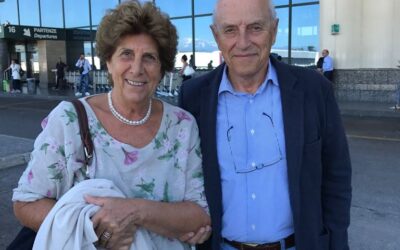The Raimondo Family from Italy: “The spirituality of unity opened our heart and our mind to brothers and sisters of other cultures and faiths.”
The Adventure of Unity / Building the Work of Mary
Work of Mary is the Focolare Movement’s other name. In honour of its 70th anniversary, we consider how the Holy Spirit brought the Movement forward beginning with the adherence of Chiara Lubich and her first group of followers.
Finding God in Prison
From forgiveness to commitment to prison ministry. New relationships based on mercy that produce unexpected effects.
Congresso gen 3: “La Parola crea”
Dal 17 al 21 febbraio si è svolto a Castelgandolfo (Roma) il “Congresso gen 3”. Obbiettivo: approfondire la vita del Vangelo. Presenti 410 ragazzi di 17 nazionalità diverse.
[:it]«Dal dolore e dalla morte una nuova vita»
Una famiglia a confronto con la Parola di Vita: “Io, quando sarò elevato da terra, attirerò tutti a me”
[:it]"Bisognava far festa e rallegrarsi …" perché era alcoolizzato ed ora è risanato
Esperienza di una famiglia della Colombia sulla Parola di Vita di marzo 2001
[:it]«Allora, vogliamo prenderlo questo caffè?»
Esperienza sulla Parola di Vita di febbraio 2001
[:it]«Ho scoperto l’Ecumenismo»
Testimonianza di una universitaria italiana in Inghilterra sulla parola di vita di gennaio: “Benedetto sia Dio che ci ha benedetti in Cristo”
[:it]«Amare il nemico del mio popolo»
Esperienza dal Guatemala sulla parola di vita di dicembre: “Nulla è impossibile a Dio”
Starting a new with no regret for the past
Idea of the Month – August 2024




